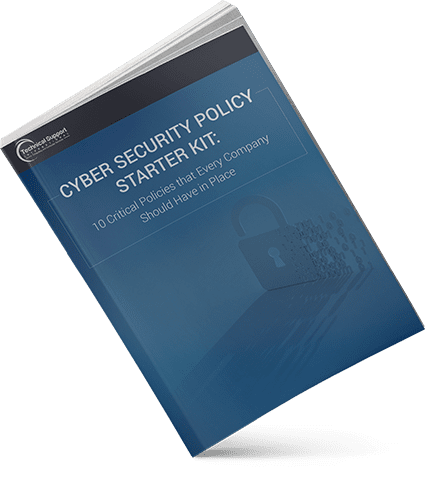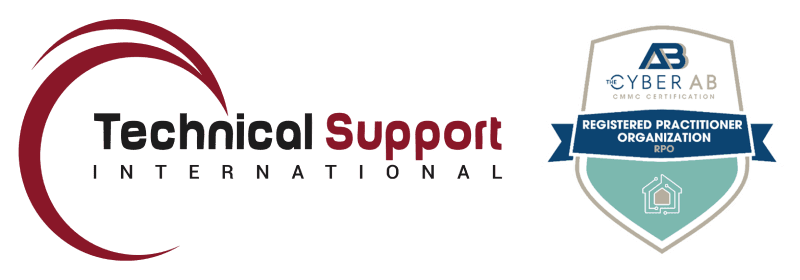Blog

Do I Need MSSP Services If I Already Have an MSP
Businesses across the globe are partnering with managed services providers (MSPs) to maximize business efficiency, embrace new technologies, and increase their IT ROI. However, with the growing cases of cybercrime and data breaches, implementing a comprehensive cybersecurity strategy has also become a core area of focus for today’s businesses. Considering that cybercrime damages are anticipated to climb to a massive $6 trillion as soon as the end of 2021 according to Cybercrime Magazine, partnering with a reliable cybersecurity company or managed security services provider (MSSP) can help businesses leverage today’s cybersecurity technologies to mitigate the impacts of online attacks and data breaches. The question is, do you need an MSSP if you have an MSP? Although every company’s support requirements and IT needs vary, the answer is a resounding yes.
Distinctive Services Offered by an MSP and an MSSP
Before we go ahead and justify our belief that you need to hire an MSSP in addition to using your MSP, let us understand the differences in the services provided by the two.
1. Services Offered by MSPs
An MSPs’ services range from ensuring that your organization’s IT infrastructure remains 100% operational, to help a new business set up their network or to help an established business with expanding or scaling their growing environments. All in all, MSPs ensure that your business’s IT systems are updated and functioning properly and can provide basic security solutions such as firewall and anti-virus management on top of on-going network infrastructure management. For a more in-depth understanding, we’ve provided an overview of an MSP’s most common services;
- Remote Management and Monitoring (RMM)
This technology helps MSPs remotely and proactively monitor business endpoints, networks, and computers. It provides a set of management services such as trouble ticket tracking, remote desktop monitoring, and remote IT support to improve the overall business performance. In other words, this technology allows MSPs to make sure that all critical assets are not only 100% available to users, but that they’re also operating at the peak efficiency needed to get more work done on a daily basis.
- Onsite Services
MSPs can perform a variety of onsite IT tasks as well. Most offer fixed monthly support plans, which include onsite support along with the management of third-party business applications. Although at this point, onsite visits from an MSP are actually quite rare because the vast majority of all tasks can be completed remotely. Still, sometimes it may be necessary to dispatch a technician to a site to handle a job that can’t be fixed via remote access or to conduct projects.
- Help Desk Support
MSPs also offer help desk support to efficiently handle customer requests. At any time, users can submit help desk tickets directly to the MSP to troubleshoot certain issues that they’re dealing with or complete tasks that need to be addressed. This allows the MSP to manage what work needs to be done to support end-users and enable them to focus on their core competencies.
- IT Security
MSPs also provide basic security solutions that provide businesses with the tools and solutions they need to combat the more common types of today’s cyber threats- notably ransomware. In addition to managing your anti-virus/malware solutions and providing perimeter security, MSPs can also perform 3rd party and critical system updates and patching, network monitoring and provide monthly executive reporting so you can effectively address vulnerabilities and adequately mitigate similar risks moving forward. In short, MSPs are more inclined towards maintaining the availability of network operations, which include basic security but typically do not have a complete approach that an MSSP has to detect and mitigate today’s more complex cyber threats.
2. Services Offered by MSSPs
Managed security services providers build upon the foundations of an established MSP’s core competencies to provide a far more comprehensive cybersecurity program to help better safeguard your business’s network systems from threats such as data theft, hacking, and ransomware attacks. MSSPs often provide advanced security services such as penetration testing, vulnerability management scanning and GRC (governance, risk, and compliance) oriented services. Some other examples of key services provided by MSSPs include:
- Security Information and Event Management (SIEM)
SIEM solutions provide real-time reporting of the activities carried throughout your business’s network and identify who shouldn’t have access to your sensitive data. The main benefit here is one of proactive protection so whenever an activity falls outside the definition of “normal”, the MSSP is alerted and a ticket is created so the issue can be proactively resolved. This allows them to immediately take whatever action is needed to solve the problem, thus potentially stopping a small problem before it becomes a much bigger (and more expensive) one later.
- Vulnerability Management Scanning
Vulnerability management scanning is used to audit, identify, and remediate technical security weaknesses in your business’s firewalls, networks, and computers. It efficiently identified missing updates or patches and enables the MSSP to effectively address security vulnerabilities. MSSPs can run external scans from outside their network perimeter to better understand the potential exposure of attacks to servers and applications that are accessible via an Internet connection. They can also use internal vulnerability scans to better identify flaws that hackers could potentially exploit to gain access to the local network as well.
- Ransomware Preparation and Remediation
MSSPs offer an advanced suite of security tools to safeguard your business from ransomware such as Cryptolocker, Reveton, and JohnnyCrypt. According to one recent study, the estimated cost of ransomware attacks globally hit $20 billion in 2020 – up from $11.5 billion just one year prior. Combined with end-user education and a sophisticated array of security tools, an MSSP can safeguard its clients’ digital assets and help businesses recover their data in the unfortunate event of a successful attack WITHOUT falling victim to cyber extortionists around the world.
Does Your Business Require an MSSP?
The above-mentioned points have made the roles of MSPs and MSSPs clear. Although both are critical contributors to any organization’s IT success, they each have their clear areas of technical expertise where they particularly excel. While MSPs remotely manage a business’s IT infrastructure, MSSPs fortify that infrastructure by applying the latest, security measures based on best practices standards.
Let’s take a look at some more compelling reasons your business needs an MSSP.
- Impeccable Security Expertise
MSSPs stay informed and updated about the latest security trends and technical know-how. A reputable MSSP will also, ‘practice what they preach’ and apply the same high standards for security in their own environments. Between that and the fact that many MSSPs also invest heavily in talented cybersecurity professionals, they have an incredible breadth of expertise and experience in managing business security and compliance programs.
- Advanced Services to Mitigate Cyber Threats
MSSPs also have access to the latest, most advanced security technologies and tools. They offer more than just basic cybersecurity and apply solutions like Security Information and Event Management (SIEM) tools to proactively monitor and manage your business’s security posture. Some of the other services a reputable MSSP can provide include mobile device management, network log monitoring, and incident response planning. By leveraging these capabilities and in combination with their internal expertise, an MSSP can better understand the specific types of threats that your business faces, and provide a holistic, customized cybersecurity strategy moving forward.
- Better Compliance Management
Ensuring industry-related compliance is met is a critical aspect of running a business smoothly. MSSPs can help formulate a complete compliance program that include the solutions and resources that will be required to become and maintain an organization’s compliance requirements. By leveraging both today’s most advanced security solutions and methodologies, an MSSP can ensure that your business proactively address any gaps within its compliance strategy and collaborate with your team to regularly review your regulatory compliance posture. As part of any reputable MSSP’s scope of services, they’ll be able to help from the day you begin formulating your compliance program strategy, from the day your audited and into the future.
- Extensive Awareness Training
MSSPs also provide end-user IT security training to help employees understand how to navigate today’s IT landscape. This is critically important, as a massive 95% of all cybersecurity breaches are still caused primarily due to human error. This means that by simply making sure that your employees understand what types of threats they will face and what to do when they’re identified, you can dramatically reduce the chances of becoming a victim of hackers and compromising your security or compliance posture. As part of any complete training program, the MSSP will also train employees to identify and mitigate cyber-attacks through simulated phishing attacks.
Do I Need an MSSP If I Have an MSP?
Unlike an MSP, an MSSP can provide your business with a far more enhanced security experience. In other words, MSSPs are more skilled in providing IT security than traditional MSPs, however, when it comes to choosing a service provider for your business, you need to keep in mind which industry you are in, your compliance requirements and the type of data your business handles. If you have a small business with limited GRC requirements, an MSP may be adequate for you. However, as your business grows, you should opt for more advanced and proactive services that MSSPs offer. To learn more about how an MSSP can help as well as some of the most important questions you should ask your current provider to ensure you’re adequately safeguarding your digital assets, please visit https://tsisupport.com/blog/ .
Categories
- Backup & Disaster Recovery
- Business Operations
- Case Studies
- Cloud Services
- Cyber Security
- Employee Spotlight
- Finance & Budgeting
- Glossary Term
- Governance & IT Compliance
- Managed Services
- Mobile Device Management
- Network Infrastructure
- NIST 800-171 & CMMC 2.0
- PCI
- Podcast
- Project Management
- TSI
- Uncategorized
- vCIO
Cyber Security Policy Starter Kit:
10 Critical Policies That Every Company Should Have in Place


